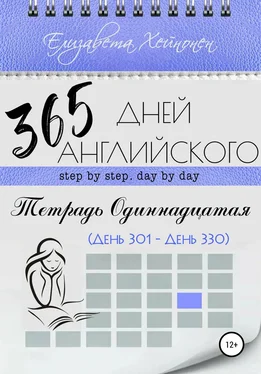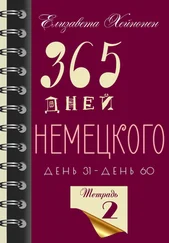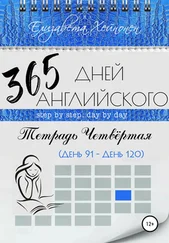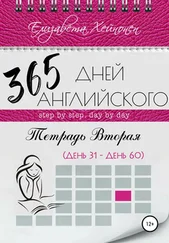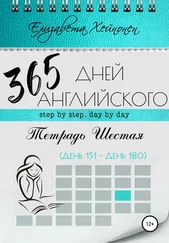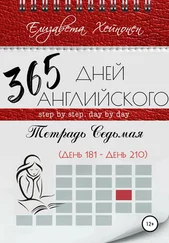Ключ.1. “But for you, we would have avoided collision with that truck.” “But for you, we would have avoided arrest.” 2. “But for General Smith, we would have won that battle.” “But for General Smith, we would have lost the war.” 3. “But for you, we would have figured him out sooner.” “But for me, he would have figured us out even sooner.” ( Или: “But for you, we would have found him out sooner.” “But for me, he would have found us out even sooner.”) 4. “But for you, we would have caught up with them hours ago.” “But for me, we would have been arrested for speeding way before that.” (В позиции перед предлогом или наречием слово way выполняет роль усилителя, например: “Grandma, you’re way behind the times.” – «Бабушка, ты сильно отстала от времени».) 5. “But for you, I wouldn’t have lost control of the car.” “But for me, we would have landed in a ditch.” 6. “But for you, we wouldn’t have landed on a desert island.” “But for me, you would have landed in the stomach of a shark.” 7. “But for you, we wouldn’t have left empty-handed.” “But for me, we would have been caught red-handed.” 8. “But for you, I wouldn’t have remained an old maid.” “But for me, you would have married the worst man ever.” 9. “But for you, we wouldn’t have ended up in jail.” “But for me, we would have ended up dead.” (Вы могли также сказать: we wouldn’t have landed in jail, что было бы практически одно и то же. Однако подобная замена невозможна в ответной реплике, поскольку ее в этом случае можно было бы понять только буквально, а именно, что человек (космонавт, парашютист) в момент приземления был мертв.) 10. “But for you, I wouldn’t have lost my job.” “But for me, you would still be working in that lousy travel agency.” 11. “But for you, I wouldn’t have broken my heel.” “But for me, we wouldn’t have made acquaintance of the most eligible bachelor in town.” (В отношении мужчины прилагательное eligible означает, что данный человек является наиболее подходящей партией для барышни по причине его богатства и/или привлекательной внешности.)
TIME FOR FUN
Two engineering students ran into each other when going across campus. One of them noticed that the other was riding a brand-new bicycle. He waved him over and asked, “Hey, where did you get such a great bike?”
"Well," said the other, "a couple of days ago, I was just walking along, minding my own business, when this gorgeous blonde pulls up, hops off the bike, rips off all her clothes, and says, “Take what you want.” So, I took the bike and left.”
The other engineering student nodded approvingly, “Good choice. Her clothes probably wouldn’t have fit.”
engineering studentстудент инженерного факультета; go acrossпересекать; campusуниверситетский двор; brand-newсовершенно новый; wave overподозвать жестом; hey!привет! was just walking along, minding my own businessшел себе, размышляя о своих делах; gorgeousшикарный, красивый; pull upподъехать и остановиться; hop offспрыгнуть; rip offсрывать, сдирать; nodкивать; approvinglyодобрительно; probablyвероятно, скорее всего; fitприходиться впору
Тема урока:Перфектный инфинитив. Конструкция would have done something.
EXERCISE 355
Вы подозреваете, что у вашего собеседника была возможность совершить некое действие и остаться при этом незамеченным. Поделитесь с ним своими догадками.
You could have sneaked into the laboratory and stolen the samples, no one would have even noticed.
Ты мог прокрасться в лабораторию и выкрасть образцы. Никто бы даже не заметил.
1. Ты мог прокрасться в комнату своей тетушки и подменить таблетки. Никто бы даже не заметил. 2. Ты мог подкрасться к старику (sneak up on somebody ) и воткнуть ему нож (stab somebody ) в спину. Никто бы даже не заметил. 3. Ты мог избавиться от трупа под покровом темноты (under cover of darkness). Никто бы даже не заметил. 4. Ты мог перелезть через стену (climb [klaim] over the wall) под покровом темноты. Никто бы даже не заметил. 5. Ты мог вылезти в окно (climb out of the window) и уйти. Никто бы даже не заметил. 6. Ты мог столкнуть ее со скалы (off the cliff). Никто бы даже не заметил. 7. Ты мог подкараулить его (ambush somebody ) и выбросить за борт. Никто бы даже не заметил. 8. Ты мог тайком пронести оружие в тюремную камеру. Никто бы даже не заметил. 9. Ты мог заменить ( также: replace something with something ) запачканный кровью (bloodstained) ковер на новый. Никто бы ничего не заподозрил. 10. Ты мог выкрасть оригинал картины и заменить его на копию. Никто бы не заметил разницы (know the difference). 11. Ты мог выдать себя за своего брата-близнеца. Никто бы не заметил разницы. 12. Ты мог обставить все так, словно это было самоубийство (stage it to look like suicide). Никто бы не заподозрил преступный умысел ( здесь: foul play). 13. Ты мог обставить все так, словно это был несчастный случай. Никто бы не заподозрил преступный умысел. 14. Ты мог обставить все так, словно это был несчастный случай на охоте (hunting accident). Никто бы не заподозрил преступный умысел.
Ключ.1. You could have sneaked into your aunt’s room and switched the pills, no one would have even noticed. 2. You could have sneaked up on the old man and stabbed him in the back, no one would have even noticed. 3. You could have got rid of the body under cover of darkness, no one would have even noticed. 4. You could have climbed over the wall under cover of darkness, no one would have even noticed. (Обратите внимание на произношение глагола climb. Последняя согласная в нем не произносится.) 5. You could have climbed out of the window and walked away, no one would have even noticed. 6. You could have pushed her off the cliff, no one would have even noticed. 7. You could have ambushed him and thrown him overboard, no one would have even noticed. 8. You could have smuggled the weapon into the prison cell, no one would have even noticed. 9. You could have replaced the bloodstained carpet with a new one, no one would have suspected anything. 10. You could have passed yourself off as your twin brother, no one would have known the difference. 11. You could have stolen the original painting and replaced it with a copy, no one would have known the difference. 12. You could have staged it to look like suicide, no one would have suspected foul play. (Foul play – это «нечестная игра», «игра с нарушением правил». Помимо буквального значения, эти слова используются также в переносном смысле как обозначение преступного умысла, вплоть до преднамеренного убийства.) 13. You could have staged it to look like an accident, no one would have suspected foul play. 14. You could have staged it to look like a hunting accident, no one would have suspected foul play.
Читать дальше
